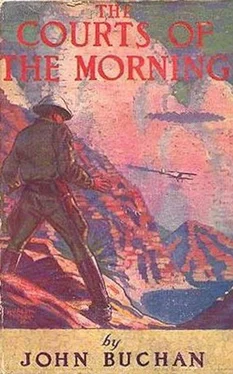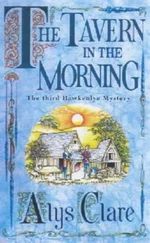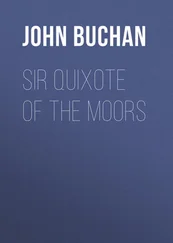John Buchan - The Courts of the Morning
Здесь есть возможность читать онлайн «John Buchan - The Courts of the Morning» — ознакомительный отрывок электронной книги совершенно бесплатно, а после прочтения отрывка купить полную версию. В некоторых случаях можно слушать аудио, скачать через торрент в формате fb2 и присутствует краткое содержание. Жанр: unrecognised, на английском языке. Описание произведения, (предисловие) а так же отзывы посетителей доступны на портале библиотеки ЛибКат.
- Название:The Courts of the Morning
- Автор:
- Жанр:
- Год:неизвестен
- ISBN:нет данных
- Рейтинг книги:3 / 5. Голосов: 1
-
Избранное:Добавить в избранное
- Отзывы:
-
Ваша оценка:
- 60
- 1
- 2
- 3
- 4
- 5
The Courts of the Morning: краткое содержание, описание и аннотация
Предлагаем к чтению аннотацию, описание, краткое содержание или предисловие (зависит от того, что написал сам автор книги «The Courts of the Morning»). Если вы не нашли необходимую информацию о книге — напишите в комментариях, мы постараемся отыскать её.
The Courts of the Morning — читать онлайн ознакомительный отрывок
Ниже представлен текст книги, разбитый по страницам. Система сохранения места последней прочитанной страницы, позволяет с удобством читать онлайн бесплатно книгу «The Courts of the Morning», без необходимости каждый раз заново искать на чём Вы остановились. Поставьте закладку, и сможете в любой момент перейти на страницу, на которой закончили чтение.
Интервал:
Закладка:
"You were right," Janet told him. "There is no mystery in Olifa. It is all as smooth and polished as a cabochon emerald, and, like a cabochon, you can't see far inside it. Your people have the satisfied look of London suburbanites on a Sunday up the river."
"Your police are too good," said Archie. "One doesn't see a single ragamuffin in the main streets. Janet and I prefer the old quarter. Some day, Don Alejandro, we want you to take us round it and tell us who the people are. They look like samples of every South American brand since the Aztecs."
"The Aztecs lived in Mexico," Janet corrected.
"Well, I mean the chaps that were downed by the Conquistadors."
Don Alejandro laughed. "Our old quarter is only a tourist spectacle, like the native city in Tangier. For the true country life you must go to the estancias and the savannahs. I have arranged by telegraph for your visit to my cousin at Veiro."
"And the Gran Seco?"
"That also is in train. But it is more difficult and will take time."
"I said there was no mystery in Olifa," Janet observed, "but I rather think I was wrong. There is the Gran Seco. It seems to be as difficult to get into it as into a munition factory. Have you been there, Mr. Wilbur?"
The American Consul had been devoting serious attention to his food, stopping now and then to regard Janet with benevolent attention.
"Why, yes, Lady Roylance," he said. "I've been up to the Gran Seco just the once since it blossomed out. I've no great call to go there, for Americans don't frequent it to any considerable extent."
"Wilbur hates the place," said Don Alejandro. "He thinks that every commercial undertaking on the globe should belong to his countrymen, and it vexes him that the Gran Seco capital should be European."
"Don't you pay any attention to Mr Gedd," said the big man placidly. "He's always picking on my poor little country. But I can't say I care for that salubrious plateau. I don't like being shepherded at every turn as if I was a crook, and I reckon the Montana sage-brush is more picturesque. Also they haven't much notion up there of laying out a township. They'd be the better of some honest-to-God Americans to look after the plumbing."
"See! He is all for standardising life. What a dull world the United States would make of it!"
"That's so. We prefer dullness to microbes. All the same, there's things about the Gran Seco which you can see with half an eye aren't right. I didn't like the look of the miners. You never in your days saw such a hang-dog, miserable bunch, just like some of our old Indian reservations, where big chief Wet Blanket and his wives used to drink themselves silly on cheap bourbon. And how in thunder does Castor get his labour? He's got a mighty graft somewhere, but when I first came here the Gran Seco Indians were a difficult folk to drive. I've heard that in old times the Olifa Government had trouble with them over the conscription."
"They were savages," said Don Alejandro, "and they are savages still. Castor has doubtless the art of dealing with them, for he himself is on the grand scale a savage."
Archie pricked up his ears.
"Castor? Who is he?"
"The Gobernador of the province. Also the President of the company."
"I saw a fellow coming out of the Gran Seco head office--a fellow with a black beard, who didn't look as if he missed much."
"That was Señor Castor. You are fortunate, Sir Archibald, for you, a new arrival, have already seen Olifa's great man, and that is a privilege but rarely granted to us Oliferos. He descends upon us and vanishes as suddenly as a river mist."
"Tell me about him," said Janet. "Where does he come from? What is his nationality?"
Don Alejandro shook his head. "I do not know. Mr Wilbur, who is a man of hasty judgments, will say that he is a Jew. He is certainly a European, but not a Spaniard, though he speaks our tongue. I can only say that he emerged out of nothing five years ago, and became at once a prince. He rules the Gran Seco, and its officials are altogether his creation. And since he rules the Gran Seco he rules Olifa. He has, as Mr Wilbur would say, this country of mine by the short hairs."
"He don't meddle with politics," said the American, and Janet noticed that as he spoke he cast a quick glance around him, as if he did not wish to be overheard. Don Alejandro, too, had lowered his voice.
"What nonsense!" said the latter. "He is money, and money is our politics to-day. Once we Latins of America were a great race. We were Europeans, with minds enlarged and spirits braced by a new continent. You are a soldier, Sir Archibald, and will remember that the bloodiest battles of last century were fought in La Plata and on the Uruguay. Our plains were the nursery of the liberties of Italy. But now we have but the one goddess. We are rich and nothing more. Soon we shall be richer, and then, my dear Wilbur, we shall be the devotees of your great country, which is the high-priest of riches."
"I can't say that you're showing any special devotion just at present," said the other dryly. "My nationals--thank God there aren't many--are about the most unpopular in this State. But quit talking about politics. We're out to give you a good time, Lady Roylance, and we want to know just how you'd like us to set about it."
Janet was of a patient and philosophical temper, but Archie liked to take his sensations in gulps. So far Olifa, he admitted to himself, had been a little boring. The place, for all its beauty, had a deadly commonplaceness--it was the typical bourgeois State, as Don Alejandro had declared the first night. And yet he was conscious that this judgment did not exhaust the matter. There were moments when he felt that Olifa was a strange woman in a mask of cheap silk, a volcano overspread with suburban gardens. Behind even the decorousness of the Avenida he savoured a mystery. Into the pleasant monotony of the days had come wafts of air from some other sphere--a peasant's face in the market, the bearded Gobernador, the pallid men in the hotel, even the preposterous figure of Dick Hannay's former batman. These things had stirred in him an irrational interest.... Perhaps if he went into the hinterland he would find the glamour of Olifa, of whose existence he was convinced, but which had hitherto contrived to evade him.
The club dining-room was full, and when they left it for coffee on the terrace beside the patio they had difficulty in finding chairs. It was apparently the practice to dine elsewhere and come to the club to dance, for a band was pounding out ragtime, and a dozen couples were on the floor.
"The Moplahs," Janet sighed happily.
It was beyond doubt the American party from the yacht, and in that place they were as exotic as a tuberose in a bed of wallflowers. They had conformed to convention in their dress, for the four men wore dinner-jackets, and the four girls bright, short-skirted, silk-taffeta gowns and long pearl necklaces. Among the powdered Olifero ladies and the sallow Olifero cavaliers their fresh skins made a startling contrast, and not less startling were their shrill, toneless voices. They chattered incessantly, crying badinage to each other and to the band, as they danced the half-savage dances with an abandon which now suggested wild children and now the lunatic waltzing of hares in an April moonlight. Janet laughed aloud, the picture was so crazily fantastic. A Spanish girl, in a frock with wide flounces and with blue-black hair dressed high and surmounted by a gold comb, was suddenly cannoned into by a fluffy-headed minx, who apologised in a voice like a vindictive kitten's, and was rewarded by a stony stare. Just so, Janet remembered, she had seen a greyhound repel the impudence of a Skye terrier.
"I don't see my tall girl," she said.
"The fellow with the starched linen knickerbockers isn't here," said Archie. "I didn't see his face, but I think I would know him again. Who are they, Mr Wilbur?"
Читать дальшеИнтервал:
Закладка:
Похожие книги на «The Courts of the Morning»
Представляем Вашему вниманию похожие книги на «The Courts of the Morning» списком для выбора. Мы отобрали схожую по названию и смыслу литературу в надежде предоставить читателям больше вариантов отыскать новые, интересные, ещё непрочитанные произведения.
Обсуждение, отзывы о книге «The Courts of the Morning» и просто собственные мнения читателей. Оставьте ваши комментарии, напишите, что Вы думаете о произведении, его смысле или главных героях. Укажите что конкретно понравилось, а что нет, и почему Вы так считаете.












